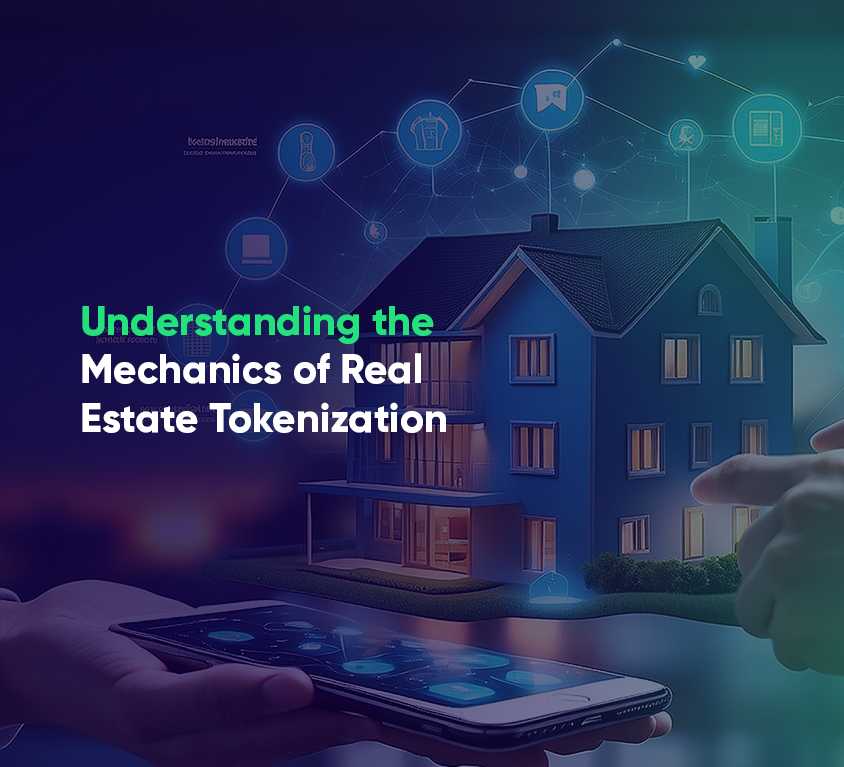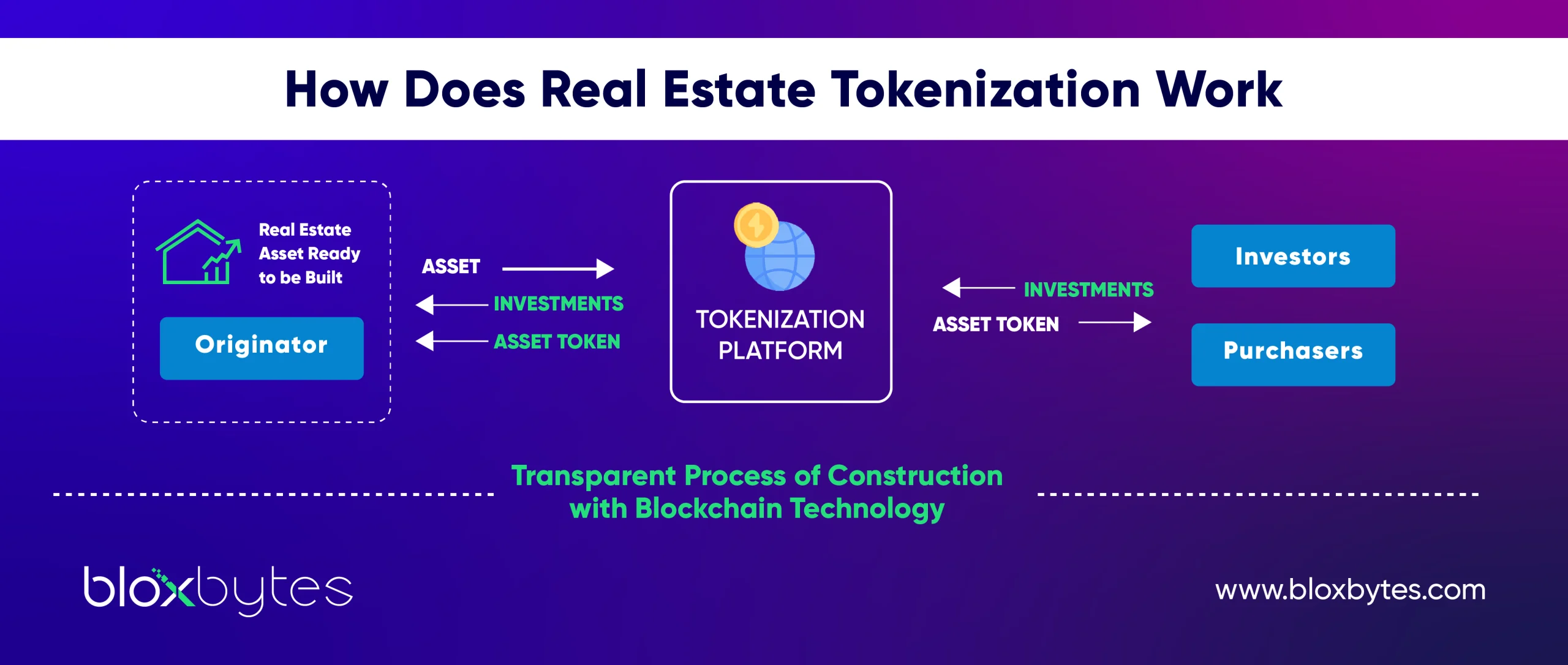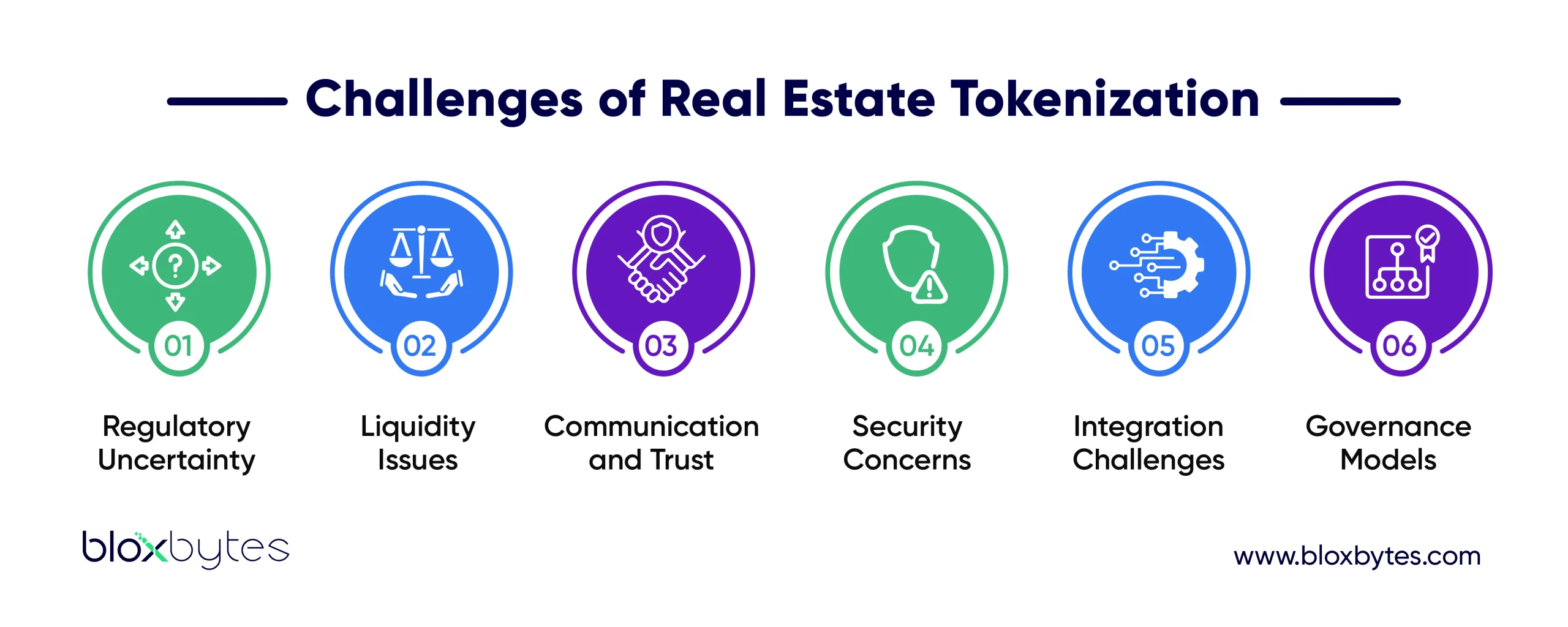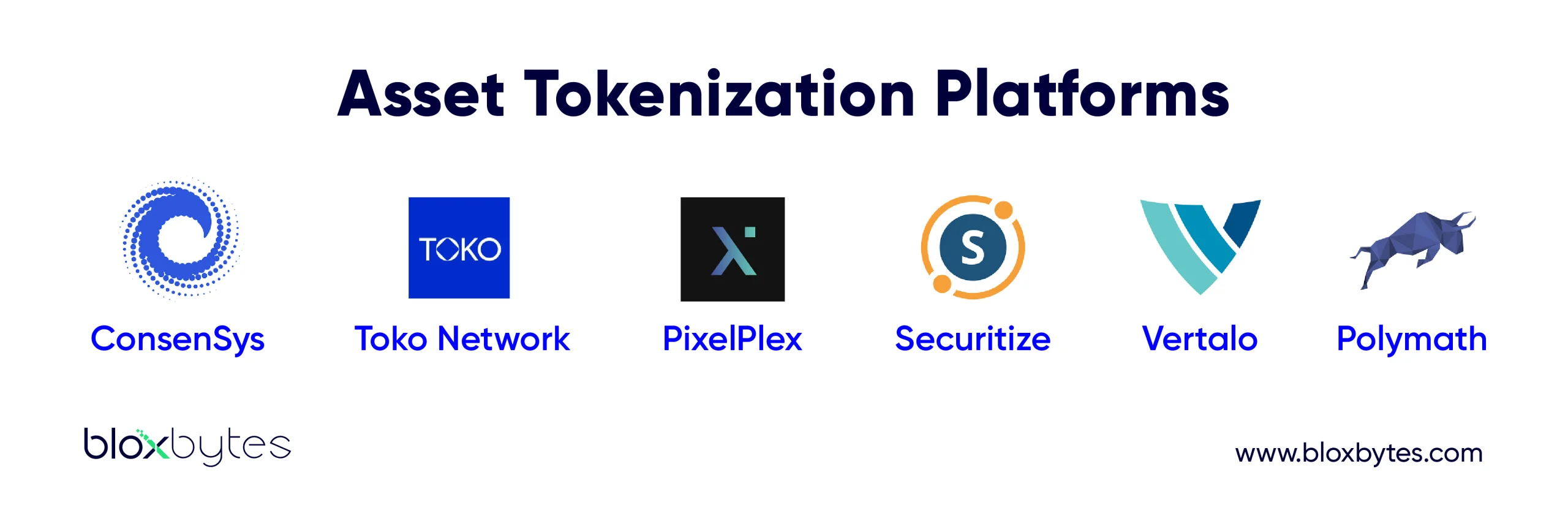
Introduction
Blockchain & Web3 Services Trusted By Leaders
- Develop innovative solutions using our state-of-the-art blockchain expertise.
- Achieve accelerated growth with robust & scalable Web3 consulting.
- Unlock 360-degree security with our top-rated blockchain development.
Understanding the Mechanics of Real Estate Tokenization
Blockchain technology continues to advance despite all the debates, biases, regulatory challenges, and market speculations. One practical application of blockchain – tokenization – has found a real-life application in the real estate industry. The concept of tokenization emerged soon after the inception of blockchain and has been considered promising since its early days. As per McKinsey, the market for tokenized digital securities is projected to expand to $5 trillion by 2030. Real estate tokenization, in particular, is considered to make a significant impact on this growth. In 2022, the market for real estate tokenization was valued at $2.7 billion. Projections by the Boston Consulting Group suggest that this figure could surge to $16 trillion by 2030, indicating a robust growth trajectory for the sector. Let’s take a detailed look at real estate tokenization and identify what factors are contributing to its growth.Tokenizing Real Estate
Tokenization involves the digital representation of assets on a blockchain, allowing virtually any asset – ranging from financial instruments such as bonds and stocks, physical items like artwork and real estate, to intangible assets like identities and data—to be digitally represented. In the context of real estate, tokenization starts with dividing a property into fractional shares that can be managed through smart contracts, simplifying and automating the management processes. Initially, the total value of the property is segmented into smaller, manageable units based on the decisions of the property owner. These units, or tokens, can then be acquired in pieces by either a single investor or multiple investors.
Benefits of Real Estate Tokenization
Opening the Market to Smaller Investors
One significant advantage of real estate tokenization is its ability to open the market to smaller investors, thereby enhancing the activity and demand for properties. For example, consider a property valued at $100,000. By creating 100 tokens, each worth $1,000, the process of selling the property becomes akin to crowdfunding. Rather than relying on a single major investor, 100 smaller investors could collectively purchase the property. This approach significantly boosts liquidity and reduces entry barriers to the real estate market. With a lower capital requirement, properties become more liquid quickly as more small-scale investors can participate.Automation and Security Through Smart Contracts
Smart contracts automate the process of tokenization and sales, enhancing transparency and security. They eliminate the need for costly intermediaries such as agents, banks, and legal consultants. A smart contract can automatically execute a sale once the predefined conditions are met, leading to a process that is quicker, more cost-effective, and less prone to human error.Security and Transparency with Blockchain
The use of blockchain technology in real estate tokenization helps improve the security and transparency in the operations. All transactions and ownership details are recorded on the blockchain, making the data accessible and nearly impossible to alter. This ensures that all transactions are reliable and transparent.Challenges of Real Estate Tokenization
Before investing in tokenized real estate, it’s important to weigh both the potential risks and benefits. Below are the key challenges that should be considered by anyone exploring opportunities in this newly emerged domain.
⇒ Regulatory Uncertainty
One of the primary concerns with tokenized real estate is the lack of sufficient regulatory frameworks. Clear regulations are essential to protect investors, clarify ownership rights, and establish standard practices. The current ambiguity in the regulatory landscape poses a significant challenge to the broader adoption of this innovative asset class.⇒ Liquidity Issues
Although real estate is inherently a less liquid asset class, tokenization of real estate might complicate these challenges further. For widespread adoption, it is crucial to address these liquidity issues so that investors can achieve the expected fluidity similar to more traditional assets.⇒ Communication and Trust
Effective communication about the tokenization process and addressing any uncertainties regarding market value is critical for increasing investor confidence and support. This is particularly important in regions with complex legal environments, where building trust is essential for market growth.⇒ Security Concerns
Ensuring the security of the tokenization process and protecting digital ownership rights are paramount. Addressing these security concerns is necessary to gain the confidence of all stakeholders involved.⇒ Integration Challenges
For tokenized real estate to be widely accepted, it must seamlessly integrate with existing legal and financial systems. However, this integration presents its own set of challenges, which must be navigated carefully.⇒ Governance Models
Implementing robust governance models is crucial for monitoring and managing tokenized real estate effectively. Good governance helps prevent issues and ensures compliance with relevant regulations, thereby supporting the stability of this emerging market.How to Begin Investing in Tokenized Real Estate
Investing in tokenized real estate can be a profitable endeavor, but it requires careful planning and a strategic approach. Here are the steps to guide you through the process:- Choose a Platform – Start by selecting a reliable tokenized real estate platform. Look for platforms known for robust security measures, an intuitive interface, and a track record of reliability. The ideal platforms offer a wide range of properties for investment and are user-friendly.
- Register an Account – Sign up on your chosen platform and complete the required information related to your identity and financial background. This step may include completing a Know Your Customer (KYC) process to ensure compliance with legal regulations.
- Evaluate Properties – Browse through the available properties on the platform, paying attention to details such as potential rental income, type of property, and location. Ensure each listing provides thorough information, including visual descriptions and detailed overviews.
- Make an Investment – Purchase digital tokens that represent ownership of the selected property. The platform should guide you through each step of the process, including the terms of purchase and available payment options. Some platforms allow payments through various methods, including traditional fiat currencies and cryptocurrencies.
- Review Legal Documents – Carefully review all legal documents related to your investment. This includes understanding the terms and conditions, any leasing agreements, and profit-sharing arrangements. A clear grasp of these documents is crucial for making informed investment decisions.
- Monitor Your Investment – Keep an eye on the performance of the property, including rental income and any updates from the platform. Regularly check the platform’s dashboard or opt into notifications to stay informed about how your investment is doing.
- Engage with Secondary Markets – If you wish to liquidate your investment or adjust your portfolio, consider selling your tokens on secondary markets. This can be done either through the platform’s own secondary market or through other suitable exchanges. The ability to trade on secondary markets adds a layer of flexibility and liquidity to your investment strategy.
Blockchains Being Employed for Real Estate Tokenization in 2024
In 2024, several blockchain networks such as Ethereum, Tezos, Binance Smart Chain, Polkadot, and Solana will be utilized for the tokenization of real estate. Each blockchain offers unique features and advantages tailored to the needs of real estate tokenization projects. The choice of blockchain typically depends on the specific objectives of the project, regulatory requirements, and the technological infrastructure available.Here are some asset tokenization platforms you can utilize in 2024.
